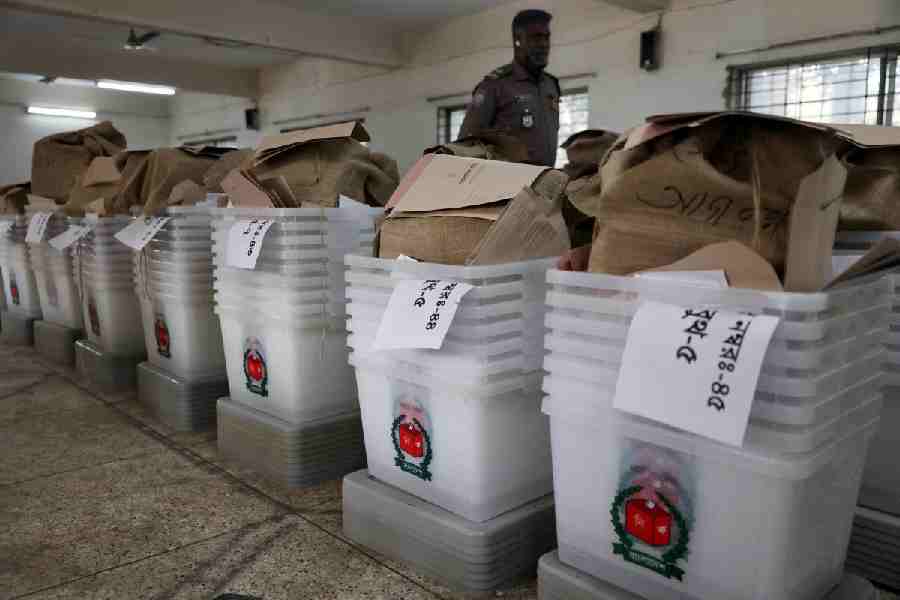One of the earliest English dictionaries was Samuel Johnson’s Dictionary of the English Language published in 1755. Johnson worked with six people at 17 Gough Square, London, between 1746 and 1755 to produce a dictionary that had 40,000 words and 114,000 quotations.
Work on the first Oxford English Dictionary (OED) was started in 1858 by a group of philologists. Some of them worked for 20 years on it. James Murray began work on the OED in 1878. He died in 1915 and it was only in 1928 that work on the first edition of OED was completed. The dictionary was published in 10 volumes, carrying the title A New English Dictionary on Historical Principles, followed by ‘founded mainly on the materials collected by the Philological Society’.
“This goes to show the amount of work that goes into the making of a dictionary,” said Malabika Sarkar, vice-chancellor of Presidency University, at the launch of Oxford University Press’s English-English-Bengali Dictionary in the city on Friday.
“I am amazed at the amount and range of material this dictionary provides,” said Sarkar about the 1,500-page tome.
OUP’s English-English-Bengali Dictionary is its first Bengali dictionary. “We have done an English-English-Hindi dictionary, an English-English-Tamil dictionary, an English-English-Oriya and an English-English-Marathi dictionary earlier,” said Ranjan Kaul, the managing director of OUP. Each of these have sold around 50,000 copies, while the Hindi dictionary sells 200,000 copies annually. Kaul is hopeful the English-English-Bengali version will find a large market not just in Bengal but also in Bangladesh. He also plans to export the dictionary to the UK.
Calling the dictionary a “language learning tool”, Kaul said, “It has the latest spellings approved by the Paschimbanga Bangla Akademi and uses a lot of colloquial terms.” When asked why it gives meanings in both English and Bengali, he said, “The definition and meaning of the lead word is first given in English and then for first-generation learners, the meaning is given in Bengali. Both students, learners and translators will find it useful because a lot of synonyms in Bengali are also given.”
OUP has plans of doing two-way bilingual digital dictionaries as well. “There are a lot of two-way or bidirectional bilingual dictionaries in European languages like Italian, French, German. These are mainly for tourists and travellers. These are digital dictionaries available in mobile apps. In three to five years,we will also do a similar thing like an English-Bengali-Bengali-English dictionary,” said Kaul.











